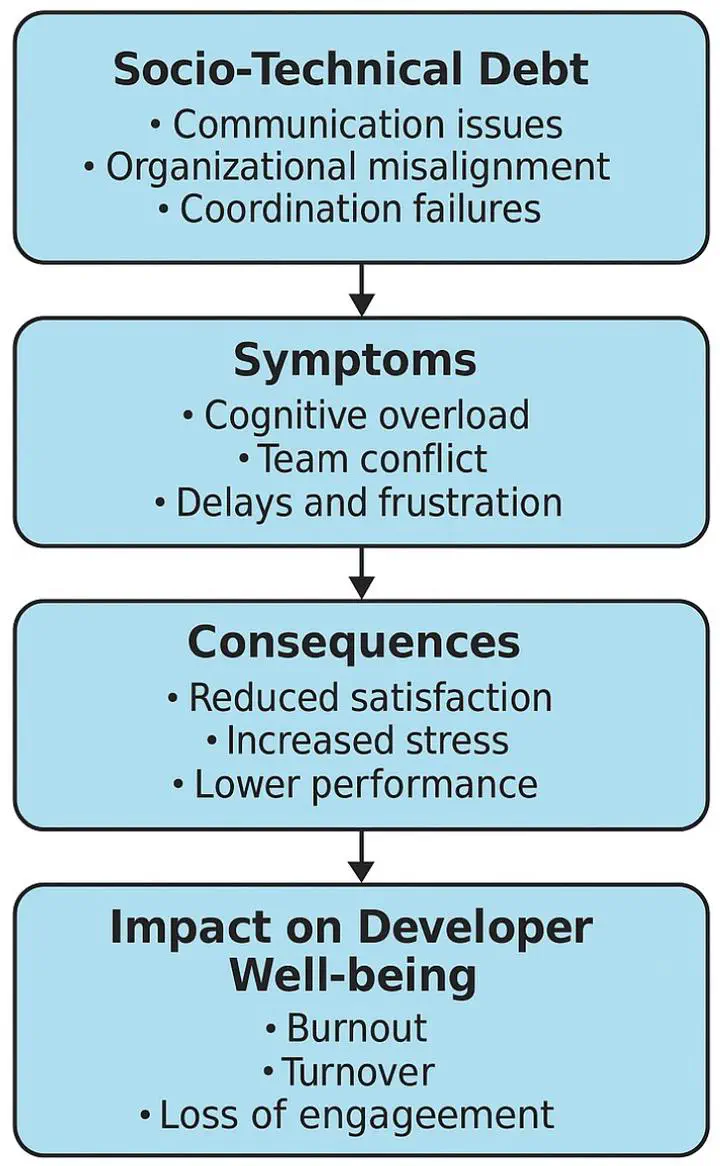The impact of socio-technical debt on the well-being of developers
 Impacts of socio-technical debt
Impacts of socio-technical debtThis thesis explores the impact of socio-technical debt on developer well-being. It combines two approaches: a quantitative approach (a structured questionnaire and a perceived stress scale) and a qualitative approach (a thematic analysis of open-ended responses). This study highlights existing links between perceived debt, social tensions, and workplace stress.
The results demonstrate that debt is not limited to code alone, but also encompasses social, organizational, and psychological aspects. Community smells such as Radio Silence, Lone Wolf and Bottleneck appear to be reliable indicators of internal imbalances. The three initial hypotheses were validated: debt increases stress, community smells reduce satisfaction and developer involvement in technical decisions mitigates the negative effects.
The qualitative analysis confirms these results and highlights a pronounced need for recognition, transparency and collaborative management. Concrete lines are emerging, namely: allocating time to refactoring, documenting continuously and making management more aware of technical and human challenges.
This work offers several perspectives on the medium and long term. In this regard, we could consider measuring the long-term impact of debt or implementing an automatic community smell detection tool, as well as the differences across organizational environments. This study contributes to a broader understanding of socio-technical debt by including developers as key stakeholders for sustainable management.